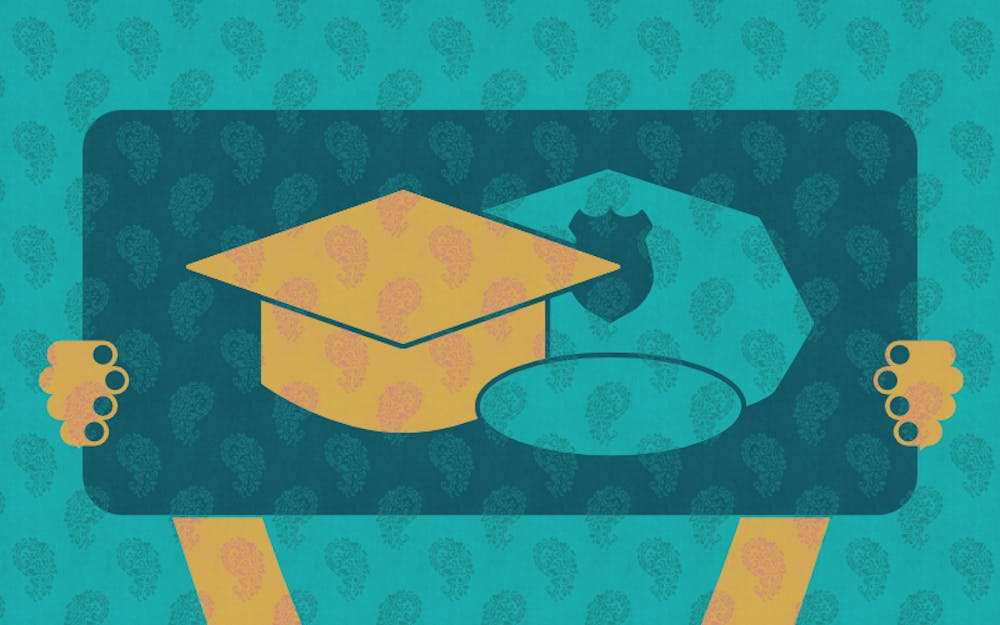This Tuesday, Penn students, faculty, and employees, along with tens of millions of other Americans, will cast their votes in what is arguably the most important presidential election of our lifetimes. Despite this monumental civic moment, Penn has refused to suspend University operations, despite widespread calls to do so.
Partially in response to Penn's decisions regarding Election Day, a new student movement has formed. The Penn Scholar Strike for Wellness, which has garnered the support of prominent student groups such as CAFSA and Police Free Penn, seeks to get students to boycott class on Nov. 3 and 4. As the name implies, the strike both hopes to give students the break Penn has repeatably refused to and to call attention to critical issues facing the Penn community, such as mental health awareness and police defunding. Owing to these noble goals, Penn students must support the scholar strike, and if possible, actively participate in it.
This week will likely mark a significant turning point in both our lives and in American history. Numerous student leaders have already pointed out how attending class tomorrow could mean sacrificing civic engagement. Furthermore, it is likely that election night will cause significant anxiety for the student body, especially if it appears President Trump is on course for a second term.
Owing to the considerable emotional and personal investment many students place into this election, they will need both Election Day and at least one additional day off. The Scholar Strike does exactly that when it calls on students to boycott classes on Nov. 3 (the day of the election) and Nov. 4 (the day after). Its timing will boost civic engagement, allow students to follow a pivotal event in politics more closely, and give them a chance to communicate their feelings with their parents and peers.
Even if one ignores Tuesday's election completely, there's no denying we are living in incredibly stressful times. Virtually every Penn student has faced some form of fear or anxiety about how COVID-19 could affect themselves, the people they love, or the school they attend. There is an epidemic of loneliness due to the online format of classes. And the past six months have brought about a long-overdue reckoning on race with numerous police killings of unarmed Black men, including one on our own doorstep.
These outside pressures have strained an already stressed student body even further. Given the fact that most Penn students will go about three months without a legitimate break from another major stressor, school, the strike does what the University will not. As the organizers of the strike note, the strike is designed in part to help students "prioritize their wellness and care." Taking just two days off could do wonders for a student body that has already faced a year like no other.
In addition to the electoral and medical importance of the strike, Penn students should also support its goals related to the Penn police. Specifically, the strike's organizers demand that the University meet with Police Free Penn, commit to a plan for defunding the University's police department, and restrict the range in which Penn's police force can operate. Given how Penn police officers have operated far beyond the University's western edge, and given how the University has thus far failed to meaningfully respond to the police reforms demanded by over 15,000 people, it is imperative that Penn students, at the absolute minimum, also support the strike's demands with regard to law enforcement.
Over the past year, Penn's administration has made a number of hard choices that have faced substantial student backlash. However, its decision to not suspend operations on Election Day ranks among its worst. It's unfortunate that Penn students have to take matters into their own hands. But now it has come to that, they must do what the administration will not, and give themselves a break from class.
SEE MORE FROM THE DAILY PENNSYLVANIAN EDITORIAL BOARD:
Editorials represent the majority view of members of The Daily Pennsylvanian, Inc. Editorial Board, which meets regularly to discuss issues relevant to Penn's campus. Participants in these meetings are not involved in the reporting of articles on related topics.
SEE MORE FROM THE DAILY PENNSYLVANIAN EDITORIAL BOARD:









